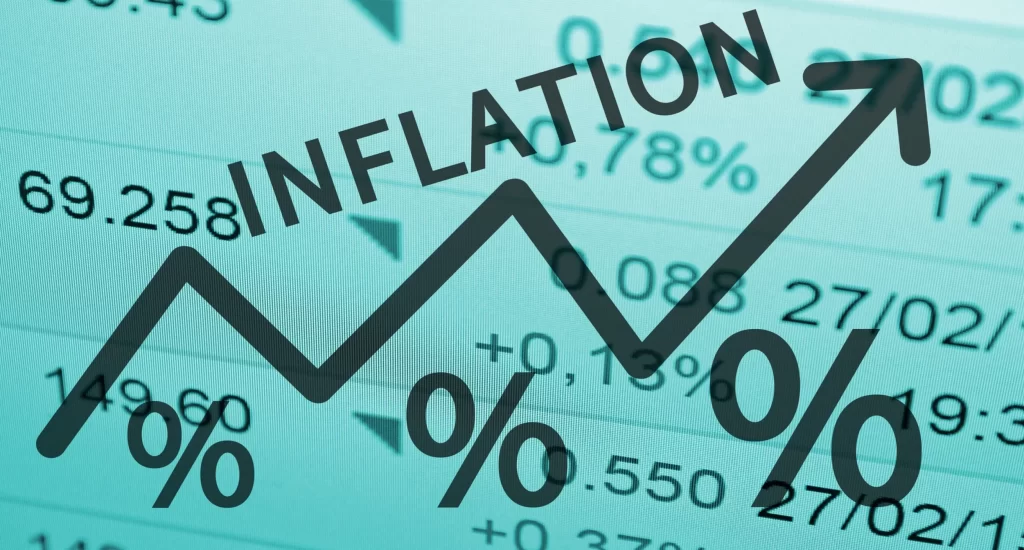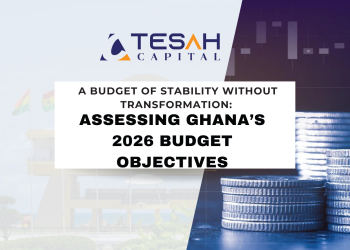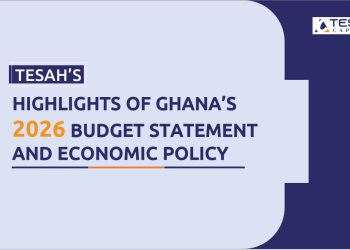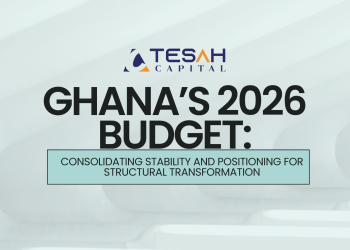The Monetary Policy Committee (MPC) of the Bank of Ghana (BoG) on August 17, 2022, decided to increase the policy rate by 300 basis points to 22%. The decision at the extraordinary MPC meeting follows last month’s decision to pause on the recent interest hikes. In the MPC press release, the committee attributed the policy rate increase to the spike in the headline inflation rate from 29.8% in June 2022 to 31.7% in July 2022. In addition, the committee noted that the broad-based nature of the consumer price index (CPI) inflation has translated into strong underlying inflationary pressures. Furthermore, the MPC highlighted the elevated demand pressures in the foreign exchange market which has led to a 25.5% year-to-date depreciation of the Ghana cedi.
We think the decision to increase the policy rate is a step in the right direction, even though it could have been done a month earlier. The increase in the policy rate serves two main purposes in the fight against inflation. First, it will slow down demand to give supply time to catch up in dealing with the excess demand in the economy. A careful study of the July CPI report from the Ghana Statistical Service (GSS) shows that the increase in the Consumer Price Index (CPI) was broad-based. Food inflation rose to 32.3% in July 2022 from 30.7% in June 2022. Similarly, non-food inflation increased to 31.3% from 29.1% in June 2022, contributing 55% to the rise in headline inflation in July 2022. This is an indication of excess demand. In as much as some of the factors driving inflation are supply shocks, the central bank does not have the tools to deal with supply shocks. Neither should the central bank sit on the sidelines when inflationary pressures have spread across all sectors of the economy. The best response of an inflation targeting central bank in this case is to raise the policy rate.
The second purpose of the decision, which we consider even more important, is that an increase in the policy rate will help anchor inflation expectations around the target. The tendency for inflation to persist occurs mainly because of inflation expectations. Inflation is a self-fulfilling prophesy. If markets expect inflation to be higher than target in future, inflation will be higher than target today. At 31.7%, inflation is more than three times the target range of 8% +/- 2%. The Bank of Ghana ought to demonstrate and send a strong signal to market participants that it will do whatever it takes to return inflation to target. Failure to anchor inflation expectations to target risks a runaway inflation.
The decision to increase the policy rate by 300 basis points, however, comes at a cost. Like every economic decision something must give. This will further increase the cost of borrowing and increase the already high cost of doing business in Ghana. It will slow down economic growth as businesses and households decrease spending. However, we agree with the Bank of Ghana that inflation and the cedi depreciation concerns should take precedence over high cost of doing business and slow economic
growth.
The Monetary Policy Committee of the Bank of Ghana did not only increase the policy rate. It also announced other measures to address the underlying challenges confronting the Ghanaian economy. They include:
1. Raising the primary reserve requirement of banks from 12% to 15%.
2. Boosting the supply of foreign exchange by collaborating with mining firms, international oil companies and their bankers to purchase all foreign exchange arising from the voluntary repatriation of export proceeds from mining, and oil and gas companies.
However, we are of the opinion the second most important measure from the MPC meeting was the Bank of Ghana working with the Ministry of Finance to agree on a cap on overdraft. Ghana’s current economic challenges are largely fiscal in nature. As reflected in the mid-year budget review, the Bank of Ghana through its overdrafts to the government of Ghana was the largest financier of the fiscal deficit in the first half of 2022. About 78% of the GHS 28 billion financing need came from the Bank of Ghana. In the process, Ghana lost about $2 billion of international reserve. Even more worrying is that Ghana as of June
2022, for the first time since 2001, had a negative net foreign asset (NFA) of GHS -6.4 billion on top of the chronic current account deficit. This may expose the cedi to currency speculators, who may drive it even lower.
To conclude, we commend the Bank for helping to close the financing gap when needed. But this is not sustainable and cannot continue for the second half of the year. In the continuing absence of access to international capital markets and the constrained domestic financing, the Ministry of Finance may need to control spending even further to avoid deficits. This must be done even if it means a temporary suspension of some of the government’s flagship programs such as Free SHS.
Written by
Dennis Nsafoah
Assistant Professor of Economics
Niagara University, NY
Member of Research Committee, Tesah Capital






